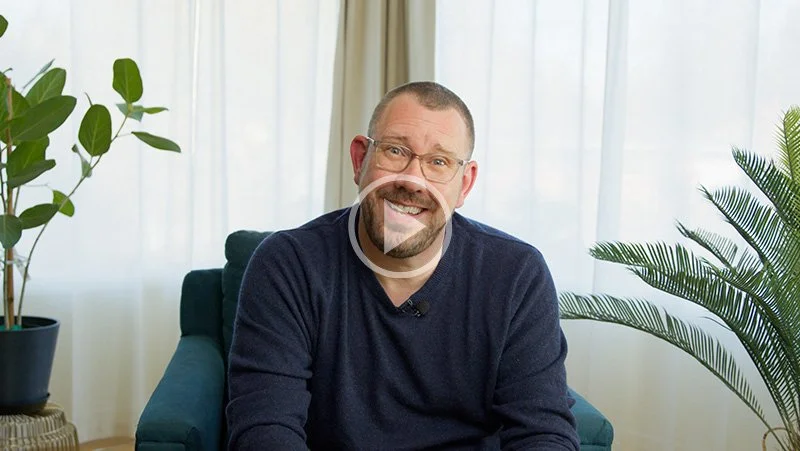Stop Having Angry Conversations in Your Head
Welcome to the #culturedrop. Every Tuesday, Galen Emanuele emails tools to advance leadership skills, team culture, and personal growth. No spam, just great content. Sign up now to get it in your inbox.
It is a totally natural and normal part of the human experience that inevitably while interacting with other people at work, in life, in friendships, relationships, we all end up having conflict and frustration and static with others.
An extremely useful brain hack that you can adopt for yourself is to recognize and stop having angry conversations in your head with someone else when they are not there.
This is something that definitely applies to me. I’ll sometimes find myself ruminating about conversations or playing out frustrated conversations with someone else in my head, but making this shift has made a world of a difference for me and my peace of mind around these situations.
“Make the decision to stop and pause, and wait until that person is in front of you to have a conversation.”
If I catch myself having a heated conversation with someone else in my head, I’ll make the choice to pause the conversation and deliberately wait until this person is in front of me so I can have it in a more productive way.
Restore your peace of mind.
It is so important to your peace of mind to avoid purposely keeping yourself in a negative headspace. It is impossible to find a resolution to a conflict with someone else by fantasizing about a knock down, drag out verbal fight with them in your head.
It’s during these conversations that we usually visualize ourselves, and the other person, saying the meanest things possible to one another and angrily putting the other person in their place.
While it may seem to feel good in the moment, the truth is that it puts your brain into a stressful, negative space, releasing cortisol (the stress hormone) which when experienced too often is bad for your mental and physical health. These angry convos ultimately have the same feel and effect as complaining. This article from entrepreneur.com goes into detail about how complaining and cortisol rewires and damages your brain and body, in a bad way.
Imagine them going differently, or just hit pause.
Different tools work for different people, and something that might actually help you is when you find yourself having those conversations in your head, fantasize about them going well and being really positive, instead of terrible and destructive.
Imagine that you actually listen and ask some deeper diving questions about why they feel that way so that you can understand them. Or that they want to hear you out in a calm way and respond positively as well. What a completely different experience for your brain and peace of mind it would be to imagine this person saying calmly to you “Tell me more about that, I want to hear where you’re coming from and find a way to solve this together.”
Either way, when you have an issue with someone else that needs to be addressed, stop battling it out in your head with them. Go right to the source, right to them directly and solve it in a productive way.
“When you have an issue with someone else that needs to be addressed, stop battling it out in your head with them. Go right to the source.”
Especially in the workplace.
At work we naturally interact with people that have different communication styles, personality types, working styles, and generally we don’t absolutely love every single person that we work with all of the time.
Being more proactive and intentional about how you navigate and resolve static and conflict at work has a positive, long term effect on you and others throughout your career. This is one easy way to reduce unnecessary conflict and resentment and maintain your peace of mind when things aren’t going smoothly. Go directly to them, use productive language and tools and sort things out.
Here’s some tips on how to have those conversations in person.
I’ve made a handful of videos about how to approach challenging conversations, here’s a few that have some tools, mindsets, and language you can use for a productive conversation to find resolution:
For myself, depending on the context of the situation and my relationship with the person, one way that I generally approach these conversations is just to say,
“Hey, there’s something that’s been lingering in my brain that I’d like to talk with you about. I keep playing out conversations and I’m having a hard time being able to move past it, so I’d like to have a conversation so we can find some resolution and smooth things out between us, are you open to having a conversation about that?”
If I notice for myself that I can’t let something go, or I keep rehashing a conversation in my brain, especially if it’s heated, or I find myself talking to other people about the issue instead of the person directly, it’s an indicator for me that I’ve got to go right to the source and sort things out with them.
It may be uncomfortable to get in the habit, but the investment in leveling up your self awareness, and your ability to have these challenging conversations results in a lot healthier communication, a lot healthier approach to resolving conflict, less static, less resentment, and healthier relationships.
Replace those angry conversations with more time for your brain to focus on something positive instead of lingering and churning around in a negative mental headspace.
Want more?
This article was created by Galen Emanuele for the #culturedrop. Free leadership and team culture content in less than 5 minutes a week. Check out the rest of this month's content and subscribe to the Culture Drop at https://bit.ly/culturedrop







